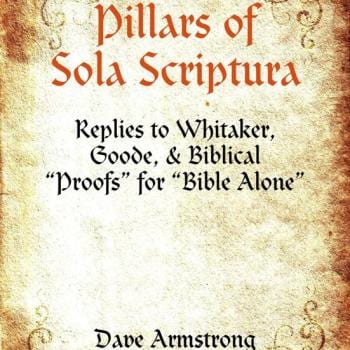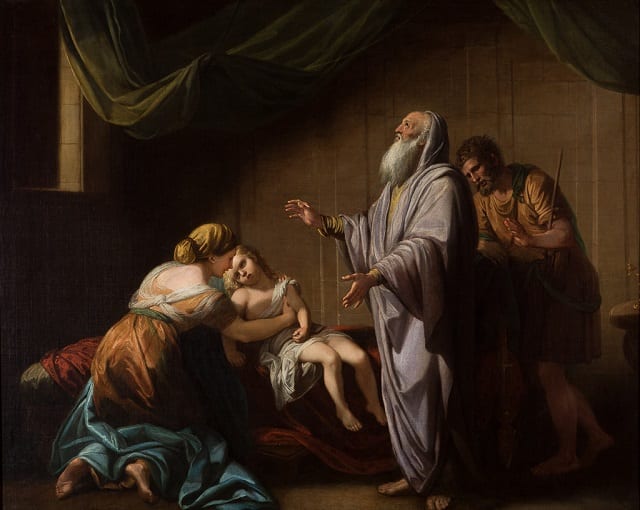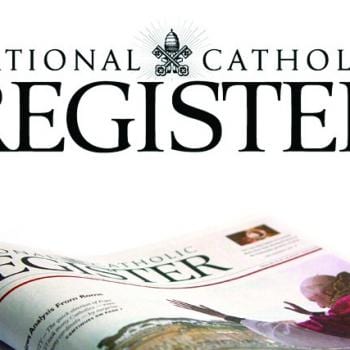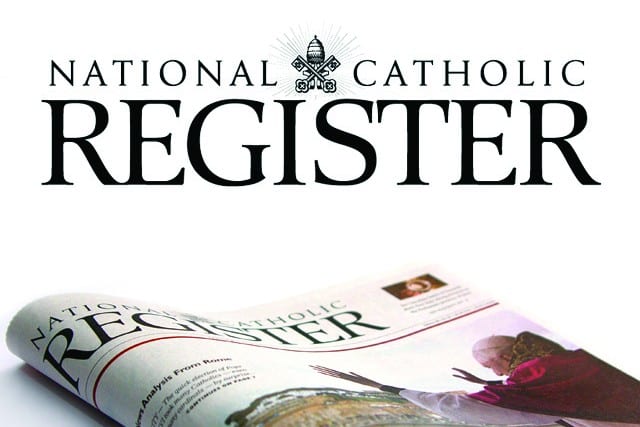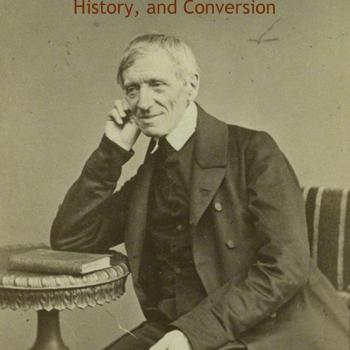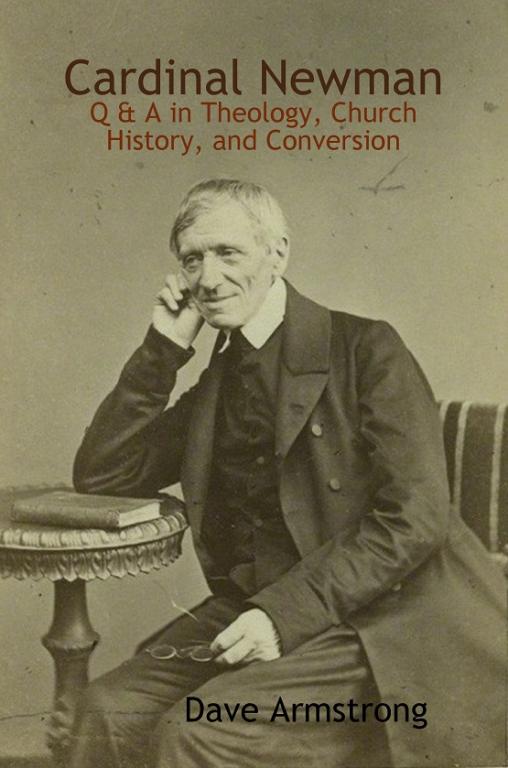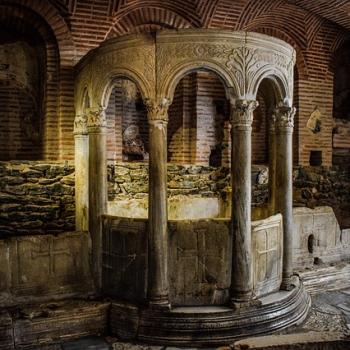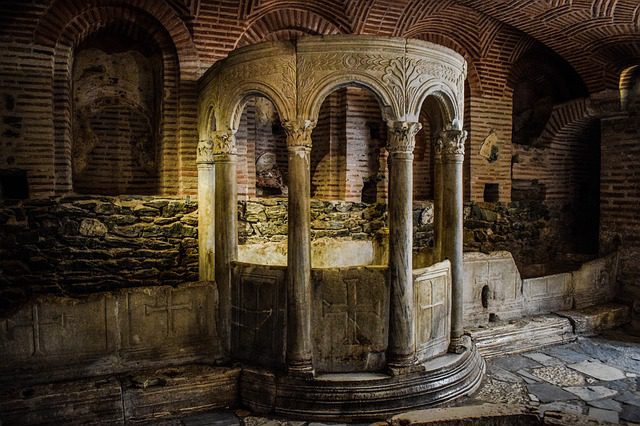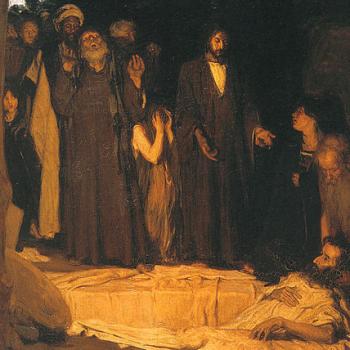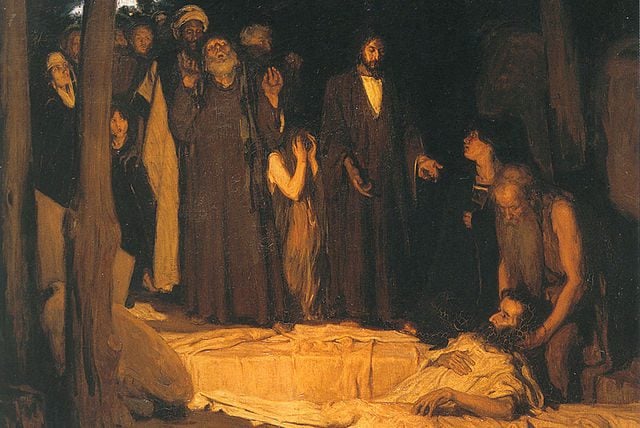— Includes a Discussion of the Proper Definition of Sola Scriptura
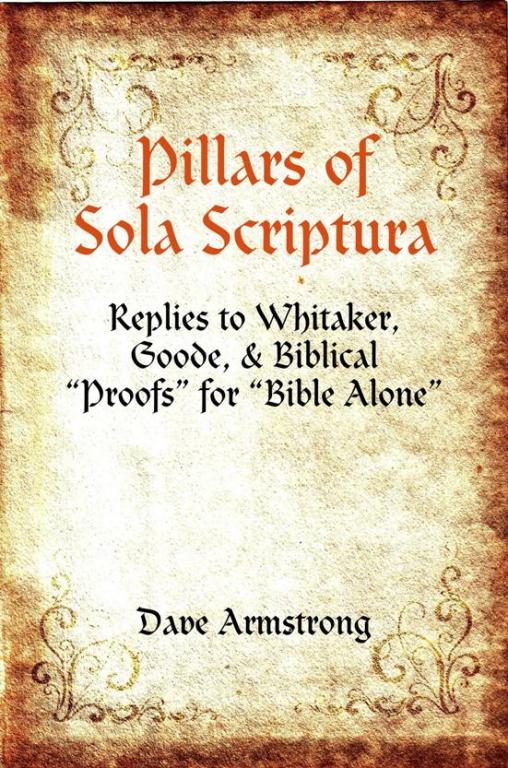
Matt Hedges is a Reformed Protestant apologist. He took issue with my paper, St. John Chrysostom (d. 407) vs. Sola Scriptura as the Rule of Faith (8-1-03), in his counter-reply: St. John Chrysostom and Sola Scriptura (2-22-21). His words will be in blue:
*****
He presents for his readers two of my citations of St. John Chrysostom:
“So then, brethren, stand fast, and hold the traditions which ye were taught, whether by word, or by Epistle of ours.” Hence it is manifest, that they did not deliver all things by Epistle, but many things also unwritten, and in like manner both the one and the other are worthy of credit. Therefore let us think the tradition of the Church also worthy of credit. It is a tradition, seek no farther. Here he shows that there were many who were shaken. (On Second Thessalonians, Homily IV)
Not by letters alone did Paul instruct his disciple in his duty, but before by words also which he shows, both in many other passages, as where he says, “whether by word or our Epistle” (2 Thess. ii. 15.), and especially here. Let us not therefore suppose that anything relating to doctrine was spoken imperfectly. For many things he delivered to him without writing. Of these therefore he reminds him, when he says, “Hold fast the form of sound words, which thou hast heard of me.” (Homily III on 2 Timothy – on 2 Tim 1:13-18)
If one thinks these quotes somehow “debunk” Sola Scriptura, it is quite clear that they did not grasp a clear definition of what Sola Scriptura actually is!
Sola Scriptura simply says that everything that is needed for salvation is contained in the written Word.
I fully agree that one must have a firm grasp of the definition of anything, in order to refute it (or defend it). Unfortunately, Matt falls short in this respect — thus immediately putting himself in a very precarious position in our little debate. The “definition” he provides is actually the definition of “material sufficiency of Scripture.” The latter is defined as follows:
The actual definition of sola Scriptura, as held by historic Protestantism is: “Holy Scripture is the only final and infallible and binding authority for the Christian.” Expanding upon that, the converse is also true: “No Church or council or tradition or single figure in Christianity (be he the pope or anyone else) can lay claim to this level of sublime authority in Christianity”.
Hence, Joel Beeke, whom Matt himself cites, notes in a different article:
Sola Scriptura at its heart was an assertion of the sufficiency of the Bible for the faith and practice of the church. In the Smalcald Articles, Luther wrote, “The Word of God—and no one else, not even an angel—should establish articles of faith” (Part 2, Art. 2, Sec. 15). The Geneva Confession (1536/37) declares in its first article, “For the rule of our faith and religion, we wish to follow the Scripture alone, without mixing with it any other thing which might be fabricated by the interpretation of men apart from the Word of God; and we do not pretend to receive any other doctrine for our spiritual government than that which is taught us by the same Word, without addition or reduction, according to the command of our Lord.” . . .
As God’s Word, the Bible is the only book characterized by infallibility and inerrancy. Every word of every sentence is there by God’s determination (2 Tim. 3:16–17). As the Word of God, the Scripture is pure truth without any assertions of error (Prov. 30:5). Thus, Luther said, quoting Augustine, “I have learned to hold only the Holy Scripture inerrant” (What Luther Says: An Anthology, ed. Ewald M. Plass [St. Louis: Concordia, 1959], 1:87). . . .
This authority is not dependent upon the testimony of mere men, or the judgment of the church, but arises from the certainty produced by the Spirit who bears witness to the Word (1 Thess. 1:5). . . .
The Reformation brought a renewed emphasis upon the Bible’s sufficiency as special revelation in opposition to Roman Catholic claims to supplement the Bible with additional revelation passed down in tradition. Calvin said, “All our wisdom is contained in the Scriptures, and neither ought we to learn, nor teachers to draw their instructions, from any other source” (Commentary on 2 Tim. 4:1). The Westminster Confession of Faith (1.6) offers a helpful summary of the doctrine: “The whole counsel of God concerning all things necessary for His own glory, man’s salvation, faith and life, is either expressly set down in Scripture, or by good and necessary consequence may be deduced from Scripture: unto which nothing at any time is to be added, whether by new revelations of the Spirit or traditions of men.” . . .
[T]he sola of sola Scriptura means that the Bible alone is the fountain and touchstone for all authoritative teaching and tradition. . . .
Nor is it right to appeal to the decisions of the church’s synods and councils as if they were as authoritative as Scripture. In Roman Catholicism, much is made of the decrees of the “Ecumenical Councils” of the ancient church, as though the authority of such assemblies were infallible and absolute. The Westminster divine did not reject the decisions of these bodies outright, but sounded a warning: “All synods or councils since the apostles’ times, whether general or particular, may err, and many have erred; therefore, they are not to be made the rule of faith or practice, but to be used as an help in both” (21.4). . . .
[T]he Bible does contain all things that God willed to function as the rule of faith and obedience for His people. (“The Sufficiency of the Bible Contra Rome”, Reformation21, 10-5-17)
Beeke has done a very good job of definition and clarification. There are plenty of Protestants who don’t understand the subtleties involved here, just as (unfortunately) even more Catholics do not. I’m not among them. I fully accept that this is the definition of sola Scriptura, a thing I used to firmly believe but now (upon much further study) reject as unbiblical, and this is the definition I have used in my three books on the topic (one / two / three). In the first, I cited in the Introduction James R. White and Keith A. Mathison (both Reformed), providing the same essential definition of sola Scriptura. I also cited the late Protestant apologist Norman Geisler (not Reformed) who agreed.
Beeke also correctly defines and clarifies biblical [material] “sufficiency”:
Biblical Sufficiency DefinedThe doctrine of the sufficiency of the Holy Scriptures teaches that “the whole counsel of God concerning all things necessary” for saving faith and the Christian life is revealed in the Bible. Therefore, the preaching, teaching, and counseling ministries of God’s church are the ministry of the Word of God. There is no need or warrant to base our doctrine or directives on anything else, even if enshrined in church tradition.
Most Catholics (including myself) agree with the notion of material sufficiency of Scripture. It’s not identical to sola Scriptura, but rather, one of several premises behind it that many (if not most or nearly all) non-Protestant Christians also accept. As Matt put it: “everything that is needed for salvation is contained in the written Word.” Yes! Absolutely! I would only add John MacArthur’s further elaboration, cited by Matt: “all truth necessary for our salvation and spiritual life is taught either explicitly or implicitly in Scripture” [my italics]. I believed that as a Protestant and do now as a Catholic, these past thirty years. So this is not at issue.
At least half of my fifty books use a methodology whereby I set out to prove Catholic doctrines by recourse to the Bible only (which was oftentimes the method of the Church fathers, without denying the authority of Church, councils, and tradition, or apostolic succession). What we dispute is the formal sufficiency of Scripture as the rule of faith in Christianity, which is basically the same as sola Scriptura: that is, that an authoritative, infallible Church and tradition are ruled out, and only Scripture functions as the final authority. No one ever believed that in the first 1500 years of Christianity.
So now that we’re on the same page as to definitions (or should be), I proceed. In light of the above, the quotations of Beeke and John MacArthur produced by Matt, preceded by: “This common Roman Catholic misunderstanding has been addressed multiple times” are non sequiturs in our discussion. Joel Beeke writes about tradition as a useful but not infallible or final authority in Protestantism (yep; already knew that, and believed it when I was an evangelical Protestant). Matt echoes this aspect by writing: ” ‘tradition’ is not a dirty word (to use Dave’s own language) as long as it is not elevated to or above the authority of the Bible.” This is included in the definition of sola Scriptura: rightly understood.
But John MacArthur repeats the same error that Matt parrots: a false equivalency of material sufficiency with sola Scriptura. Both Matt and Pastor MacArthur (whose books I used to read and radio talks I enjoyed) need to read Beeke more closely and work out their internal confusion on this matter. Matt also cites the Westminster Confession of Faith, but concerning a different aspect of sola Scriptura: perspicuity (clearness) of Scripture. That’s a different discussion and not related to what St. John Chrysostom has to say about tradition, so I bypass it, too.
Not all of the teachings of Jesus and the apostles are contained in the Bible (John 21:25). That is all that Chrysostom is saying here. This is not an issue at all for those who are committed to Sola Scriptura.
Well, this is untrue, as I will now show. What St. John Chrysostom in the first quotation above is in conflict with the correct definition of sola Scriptura and causes massive self-contradiction for the Protestant if he or she attempts to “co-opt” it. The second one, I grant, is not “definitive” enough in and of itself (I grant) to prove that he denied sola Scriptura, but the first one is, because of the clause: “let us think the tradition of the Church also worthy of credit. It is a tradition, seek no farther” (my bolding and italics).
In saying this, the great Church father (who was also very pro-papal and pro-Rome, but I digress) proves that he thought (very much like St. Augustine, who thought this about, e.g., infant baptism) that tradition was sufficient in and of itself as an indicator of true, orthodox doctrine, precisely because he says no one need seek any more to verify it. If he had believed in sola Scriptura, he would have had to qualify with “provided it is verified by Sacred Scripture” or some such. It would have to be shown as qualitatively inferior to Scripture, according to sola Scriptura. Thus it contradicts Matt’s own statement: ” ‘tradition’ is not a dirty word . . . as long as it is not elevated to or above the authority of the Bible” (my italics and bolding).
By saying “seek no farther” Chrysostom makes tradition authoritative, binding, and sufficient (in effect, infallible) in a way that is utterly anathema to sola Scriptura and Protestantism. Matt says he doesn’t contradict sola Scriptura, but he clearly does. He also contradicts many statements made by Joel Beeke in his excellent clarification of the nature of sola Scriptura:
The Word of God—and no one else, not even an angel—should establish articles of faith (Martin Luther)
[W]e do not pretend to receive any other doctrine . . . than that which is taught us by the same Word (Geneva Confession)
[T]he Bible is the only book characterized by infallibility and inerrancy. (Beeke)
I have learned to hold only the Holy Scripture inerrant (Martin Luther)
All our wisdom is contained in the Scriptures, and neither ought we to learn, nor teachers to draw their instructions, from any other source (John Calvin)
[T]he Bible alone is the fountain and touchstone for all authoritative teaching and tradition (Beeke)
All synods or councils since the apostles’ times, whether general or particular, may err, and many have erred; therefore, they are not to be made the rule of faith or practice (Westminster Confession)
[T]he Bible does contain all things that God willed to function as the rule of faith (Beeke)
All of that expressly contradicts St. John Chrysostom’s “It is a tradition, seek no farther”. Therefore, Matt’s argument collapses through the weight and burden of its own vicious incoherence and internal contradictoriness.
Conclusion: St. John Chrysostom rejected sola Scriptura and held to the Catholic rule of faith: the “three-legged stool” of Bible-Tradition-Church: all harmonious with each other and all protected by the Holy Spirit as infallible and therefore capable of producing binding “decrees” for all Christian believers, just as the infallible Jerusalem Council did (see Acts 16:4).
***
Matt made a “Counter-Counter Response”. In this, the gist of his argument was to claim that the “tradition” St. John Chrysostom referred to in the passage I highlighted was only practice and not doctrine. This was his way of trying to escape my argument. He contended:
This quote is insufficient to argue against Sola Scriptura, since it never mentions any sort of infallible magisterium that we must have for interpreting Scripture, much less defining new articles of faith . . .
This is completely irrelevant to our discussion: being an entirely distinct topic. All we have to do to prove that St. John Chrysostom rejected sola Scriptura is to show that he accepted any teaching not itself the Bible as authoritative and binding for the believer. He did so in saying that if one had “the tradition of the Church” which is “also worthy of credit” on any given topic, they need “seek no farther.” That defeats sola Scriptura because it doesn’t say that such a tradition must immediately be weighed by Scripture (though I would argue that the Catholic and patristic view holds tradition, Church, and Scripture in self-consistent harmony with each other).
Another thing . . . is what Chrysostom means by “tradition” in the first place. Take a look at his commentary on 2 Thessalonians 3:6 (which also uses the word “tradition”):
Ver. 6.
Now we command you, brethren, in the name of our Lord Jesus Christ, that you withdraw yourselves from every brother that walks disorderly and not after the tradition which they received of us.That is, it is not we that say these things, but Christ, for that is the meaning of
in the name of our Lord Jesus Christ; equivalent tothrough Christ.Showing the fearfulness of the message, he says, through Christ. Christ therefore commanded us in no case to be idle.That you withdraw yourselves,he says,from every brother.Tell me not of the rich, tell me not of the poor, tell me not of the holy. This is disorder.That walks,he says, that is, lives.And not after the tradition which they received from me.Tradition, he says, which is through works. And this he always calls properly tradition. (On Second Thessalonians, Homily 5, source)
Here, Chrysostom clearly views “tradition” as being a part of the way in which one lives, rather than some sort of new doctrine (like the Bodily Assumption of Mary, as I mentioned above). Thus, the very idea of “tradition” at all in this quote from Chrysostom is primarily with the Apostle Paul. . . .
Not by letters alone did Paul instruct his disciple in his duty, but before by words also which he shows, both in many other passages, as where he says, “whether by word or our Epistle” (2 Thess. ii. 15.), and especially here. Let us not therefore suppose that anything relating to doctrine was spoken imperfectly. For many things he delivered to him without writing. Of these therefore he reminds him, when he says, “Hold fast the form of sound words, which thou hast heard of me.” (Homily III on 2 Timothy – on 2 Tim 1:13-18)
*
First, let’s dispose of Matt’s attempted connection to 2 Thessalonians 3:6 as his own “key” to interpreting what Chrysostom is referring to in 2:15. It’s true that it’s only eight verses later than 2:15, but Paul makes a break in the subject matter. The original New Testament didn’t have chapters or verses. Chapters for the New Testament were first created in 1205 and not used in Bibles until the 16th century. Verse numbers began in 1551 (1571 in the Old Testament). St. Paul seems to be writing either a “sub-letter” or a portion of a larger one in 2 Thessalonians 2:1-17 (the whole chapter) through to 3:1-5, where he wraps up his thoughts.
*
Then he starts on another topic in 3:6, commanding that the recipients of his letter “keep away from any brother who is living in idleness and not in accord with the tradition that you received from us” (RSV, as I use throughout). This topic (Catholic Bible exegetes would readily agree, I think) does indeed have to do with behavior, as Matt argues. His only mistake is arguing that in 2:15 the same sort of “tradition” referred to (i.e., behavior, not doctrine). 3:6 forward is clearly all about behavior. 3:7 has “imitate us” and “we were not idle when we were with you.” 3:8 is about Paul paying for food, toiling and laboring so as not to be a “burden.” 3:9 is about Paul and his companion(s) providing “in our conduct an example to imitate.” 3:10 is the famous injunction that if anyone doesn’t work, he shouldn’t eat. 3:11 refers to laziness. 3:12 is about earning a proper living, 3:13 about “well-doing.” So this is all behavior. No one disagrees.
*
Now, when St. John Chrysostom refers back to this passage as dealing with “doctrine”, he is commenting on 2 Timothy 1:13-18, which is about doctrine and oral tradition. In 1:13-14 Paul is talking about the deposit of faith, which was passed on both orally and in writing:
Follow the pattern of the sound words which you have heard from me, in the faith and love which are in Christ Jesus; [14] guard the truth that has been entrusted to you by the Holy Spirit who dwells within us.
Then he moves onto another topic: people who “turned away” form him, and a good man Onesiphorus, who appears to be dead: whom he prays for (along with his household). I’ve written about that many times. Chrysostom (right after the quotation I produced from him) writes about the deposit of faith (or “apostles’ teaching”: Acts 2:42) — which is, of course, primarily doctrinal and theological — in relation to this passage:
After the manner of artists, I have impressed on you the image of virtue, fixing in your soul a sort of rule, and model, and outline of all things pleasing to God. These things then hold fast, and whether you are meditating any matter of faith or love, or of a sound mind, form from hence your ideas of them. It will not be necessary to have recourse to others for examples, when all has been deposited within yourself.
That good thing which was committed unto you keep,— how?—by the Holy Ghost which dwells in us.For it is not in the power of a human soul, when instructed with things so great, to be sufficient for the keeping of them. And why? Because there are many robbers, and thick darkness, and the devil still at hand to plot against us; and we know not what is the hour, what the occasion for him to set upon us. How then, he means, shall we be sufficient for the keeping of them?By the Holy Ghost; that is if we have the Spirit with us, if we do not expel grace, He will stand by us. For,Except the Lord build the house, they labor in vain that build it. Except the Lord keep the city, the watchman wakes but in vain.Psalm 127:1 This is our wall, this our castle, this our refuge. If therefore It dwells in us, and is Itself our guard, what need of the commandment? That we may hold It fast, may keep It, and not banish It by our evil deeds.
We need to take a step back and first inquire about the meaning of “tradition” in 2 Thessalonians 2:15. I find Gordon D. Fee’s comments on this passage helpful here:
“That Paul intends the “traditions” in this case to refer to his own teaching is made certain by his twofold reference to its source: “whether by word of mouth,” thus referring to his own teaching when he was among them, “or by letter,” now referring to our 1 Thessalonians.” (Gordon D. Fee, The New International Commentary on the New Testament: The First and Second Letters to the Thessalonians)
If Dave provides a counter-counter reply to this article (and I am somewhat certain that he will) , I would be interested in knowing if he agrees with what Gordon D. Fee says here. . . .
In St. Paul’s epistles (I noted in my first book in 1996), tradition, gospel, and word of God are synonymous concepts. They’re all predominantly oral, not written, and are referred to as being “delivered” and “received”:
1 Corinthians 11:2 . . . maintain the traditions . . . . even as I have delivered them to you.
2 Thessalonians 2:15 . . . hold to the traditions . . . . taught . . . by word of mouth or by letter.
2 Thessalonians 3:6 . . . the tradition that you received from us.
1 Corinthians 15:1 . . . the gospel, which you received . . .
Galatians 1:9 . . . the gospel . . . which you received.
1 Thessalonians 2:9 . . . we preached to you the gospel of God.
1 Thessalonians 2:13 . . . you received the word of God, which you heard from us, . . . (cf. Acts 8:14)
In RSV, Paul uses the terminology “my gospel” in writing to the Romans (2:16; 16:25) and also to Timothy (2 Tim 2:8). He uses “our gospel” in writing to the Corinthians (2 Cor 4:3) and the Thessalonians (1 Thess 1:5; 2 Thess 2:14). He uses “the gospel” many times. He also uses a term like, for example, “the faith” (referring to the apostolic deposit: i.e., Christianity) many times, as he also does by using the term “the truth” in many instances. He also uses terms like “the commandment” (1 Tim 6:14) and “the doctrine” (Rom 16:17; 1 Tim 4:6; Titus 2:10) and “teaching” (Rom 6:17; 1 Tim 4:16; 6:1) and “message” (1 Cor 2:4; 2 Cor 5:19; 2 Tim 4:15, 17) and “covenant” (2 Cor 3:6). It all amounts to the same thing. These terms (with “tradition” and “word of God”) are essentially interchangeable. They certainly don’t refer to one particular message he delivered to only one local church / congregation.
***
Matt made another counter-reply. I didn’t think it accomplished anything and so wrote in his combox: “There’s nowhere else to go with this. I thought I hit a grand slam and you think I proved absolutely nothing. LOL We’re pretty much talking past each other. So, time to move on from this one.”
*
Summary: Matt Hedges: a Reformed Protestant apologist , attempts to show that St. John Chrysostom believed in sola Scriptura. But beyond that falsehood, he didn’t even get the definition right in the first place.
***


